After a day at the Lake Tovel, I decided to extend my stay in the Italian mountains and to discover the beautiful Dolomites a little bit more.
Since there are so many amazing spots in that region it wasn’t easy at all to select where to go next.
Sass Pordoi Dolomites – Italy
In the end, I opted for Sass Pordoi known also as the terrace of the Dolomites because of its unique and particular shape.
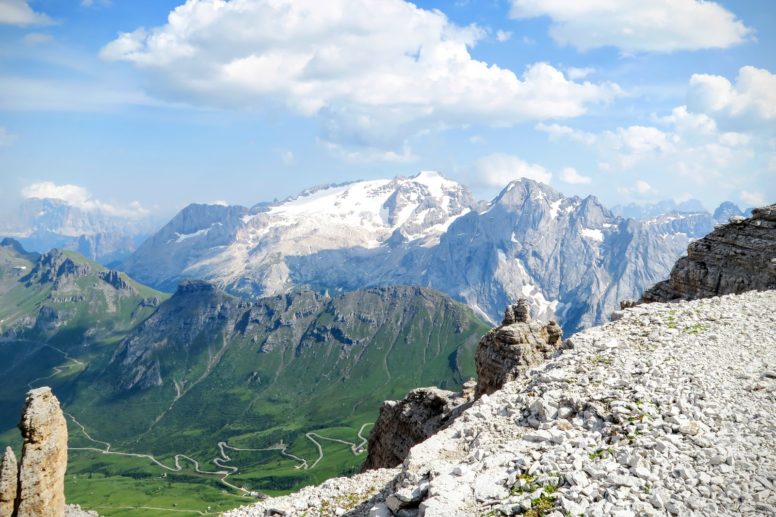
This mountain can be reached via the Sass Pordoi cableway (it’s called Funivia in Italian) which offers an incredible panoramic view of the surroundings.
The cableway has been completely revamped and modernized between the 1994 and 1995 and each of the two cabins can carry up to 65 people.
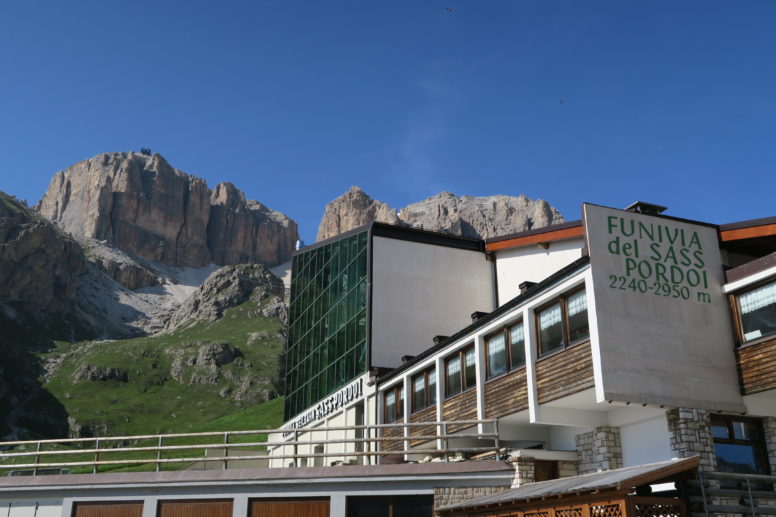
After a quick 5-minute trip you will reach the summit (at 2.950 m) and a mountain hut – Rifugio Maria where you can relax and try the traditional dishes of the Dolomites.
For those of you who have a sweet tooth like myself, I recommend ordering their delicious apple strudel.
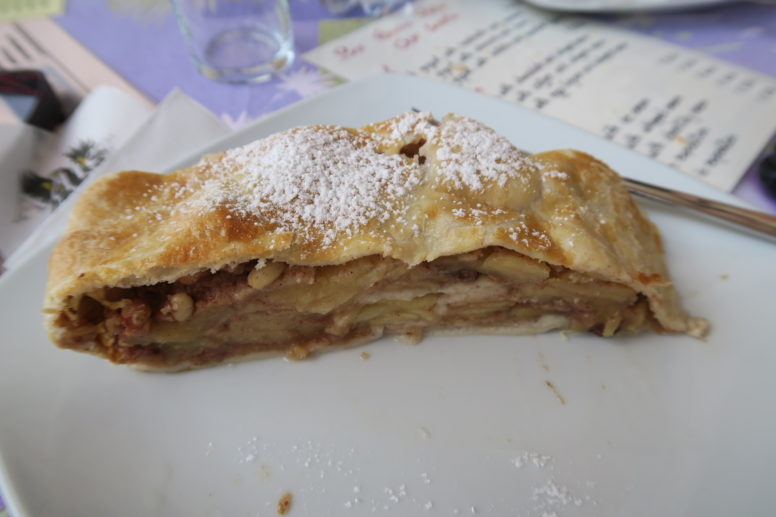
It is also possible to reach Sass Pordoi by foot. There is Via Maria – one of the most famous climbing routes of the Dolomites and also a very difficult one, suitable only for very experienced climbers with great technical skills.
In fact, you might have a chance to see some of the brave alpinists climbing the mountain while you’re on the Funivia.
Once at the top, you get to face the beauty and majesty of the mountains and you suddenly feel so small compared to the glory of the nature around you.
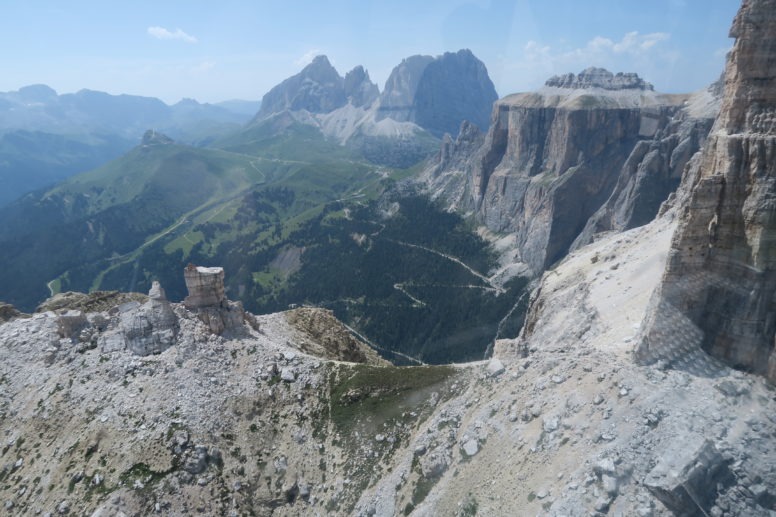
The panoramic view from the terrace of the Dolomites is incredible and will leave you absolutely speechless.
You will be able to admire first-hand all the main peaks of the Dolomites: Sorapiss, Tofana di Mezzo, Antelao, Arabba, Pelmo, Civetta, Punta Serauta, Sasso Cappello, Marmolada, Punta Penia and Gran Vernel.
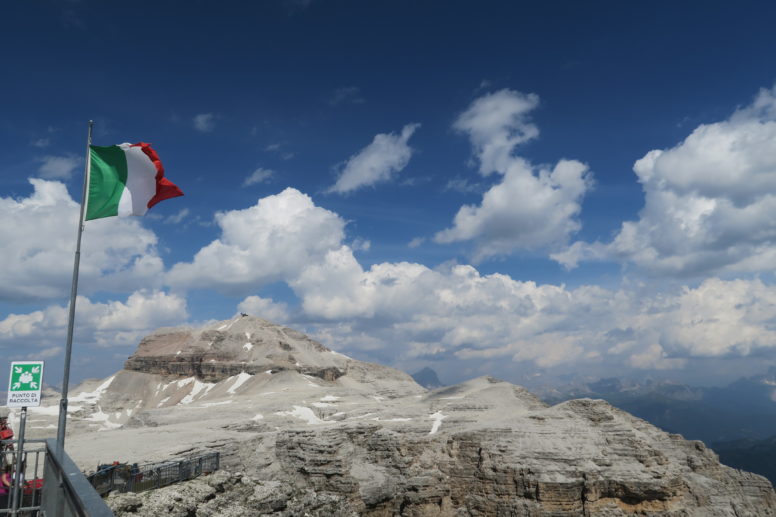
After a tasty lunch at Rifugio Maria, you can sit back, enjoy the view and soak in the warm sun of the Dolomites.
Following a few hours in Sasso Pordoi on the way back I decided to stop by another dreamy location and I’m talking about Lake Carezza in South Tyrol.
Carezza Lake Italy
Carezza Lake is surrounded by a dense green Latemar forest and is characterized by beautiful colors of the water.
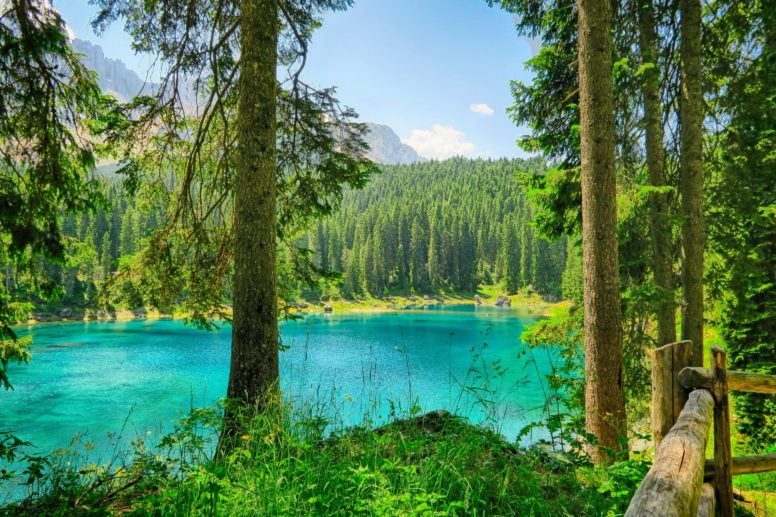
Also, the water level of the lake changes depending on the season: it is very low in October and much higher in the summer months when the snow starts to melt.
When it comes to its ecosystem, Carezza Lake is home to a population of lake char while the most common tree in the forest around is the Norway spruce – highly resonant wood ideal for musical instruments.
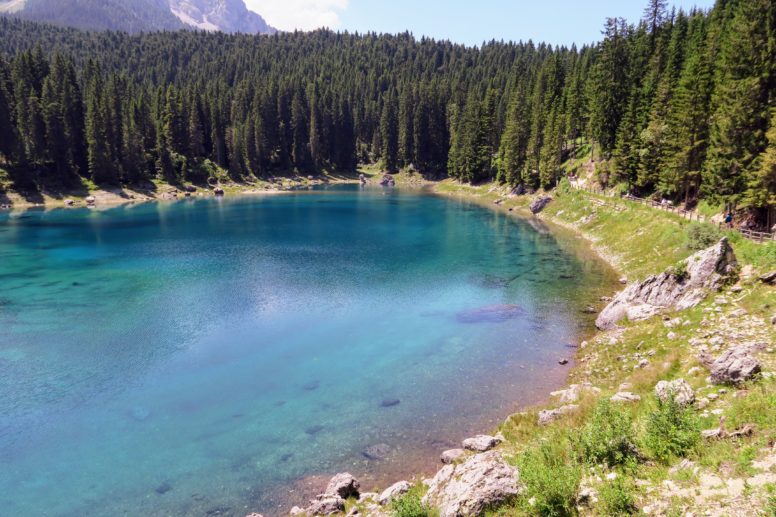
There are many legends told about Lake Carezza, especially regarding the fact that it gleams with all colors of the rainbow.
One of them tells a fascinating story about a beautiful nymph Ondina who lived in the waters of Carezza Lake.
A terrible sorcerer fell in love with her and tried to kidnap her several times without success.
One day he made a beautiful rainbow appeared above the lake in order to attract Ondina but the nymph has managed to hide away and escape from him.
At this point the magician, full of anger threw the rainbow into the lake, breaking it into a thousand pieces.
From that day Carezza Lake gleams all the amazing colors of the rainbow.
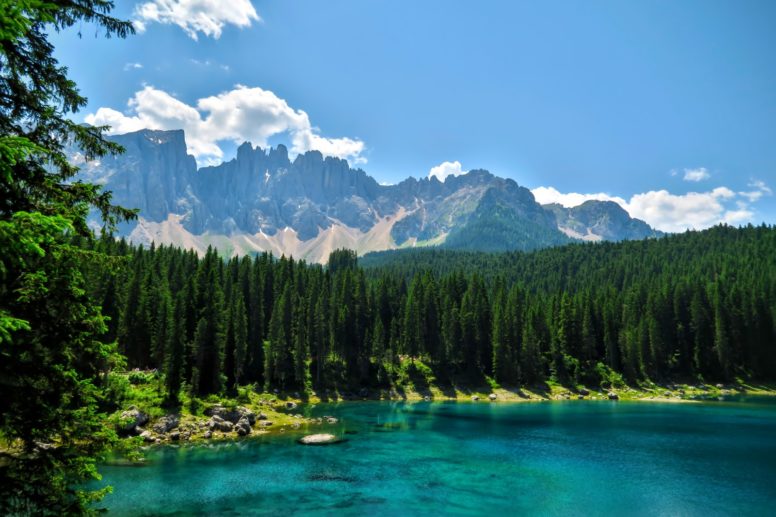
All in all, I had an amazing time discovering the Dolomites in Italy.
Both Sass Pordoi and Carezza Lake left me with beautiful memories and a selection of pictures that will certainly be printed and hanged on the wall at my house.
Photo credits: all images inside this article can be used by linking to this page following the Creative Commons Attribution-ShareAlike 4.0 International License.
Comments
7 responses to “Sass Pordoi and Carezza Lake in the Dolomites”
Incredible place and amazing photos!
Italy really has it all. Can’t wait to visit this country.
🙂
It truly does! There are the amazing mountains but also the most beautiful sea. One of my favorite countries in the world.
I love the photos! The lake is breathtaking!
I really enjoyed reading about the legend regarding this beautiful lake. I sure hope to visit this place one day.
[…] Sass Pordoi and Carezza Lake in the Dolomites […]